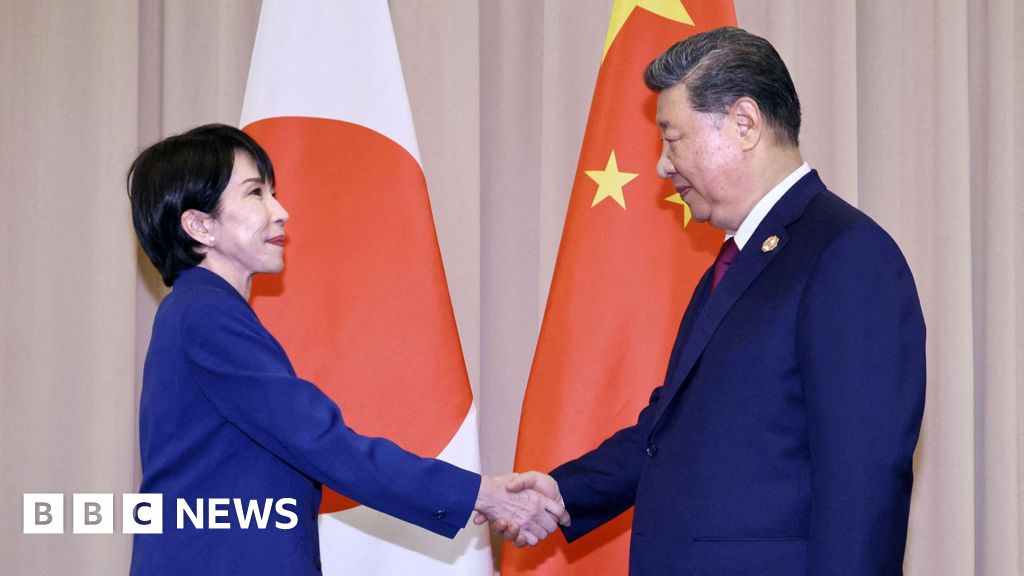China Issues Travel Warning to Japan Amid Escalating Taiwan Tensions & Diplomatic Spat Over PM Takaichi's Remarks
 China
International Relations
China
International Relations

China advises citizens against Japan travel amidst a diplomatic row over PM Takaichi's Taiwan remarks. Beijing summoned Japan's ambassador, warning against inte
China Issues Travel Warning to Japan Amid Escalating Taiwan Tensions
A significant diplomatic rift has erupted between China and Japan, prompting Beijing to issue a travel advisory urging its citizens to avoid visiting Japan. This escalation follows contentious remarks made by Japanese Prime Minister Sanae Takaichi regarding Taiwan's security and China's swift, forceful response.
The Spark: PM Takaichi's Taiwan Remarks
The dispute ignited last Friday during a Japanese parliamentary session. When questioned about scenarios that would constitute a "survival-threatening situation" for Japan concerning Taiwan, PM Takaichi stated that "if there are battleships and the use of force, no matter how you think about it, it could constitute a survival-threatening situation." This legal term, originating from Japan's 2015 security law, allows for the activation of Japan's self-defense forces to protect allies facing an existential threat.
Beijing's Outrage and Diplomatic Exchanges
Beijing immediately condemned Takaichi's comments as "egregious." The tension was further inflamed when Xue Jian, China's consul general in Osaka, reshared a news article about Takaichi's remarks on X, adding a comment interpreted by some as a threat: "the dirty head that sticks itself in must be cut off." Tokyo lodged a formal protest over Xue's "highly inappropriate" statement, while Beijing reciprocated with a protest against Takaichi's comments. Though Xue's post was later removed, the diplomatic fallout continued.
Warnings Intensify: "Stop Playing with Fire"
Undeterred, Takaichi defended her statements as consistent with Japan's "traditional position," though she committed to exercising greater caution in future specific scenario discussions. China intensified its warnings, posting on X in Japanese and English, cautioning Japan to "stop playing with fire" and branding any Japanese intervention in the "cross-Strait situation" as an "act of aggression."
The same day, Chinese Vice Foreign Minister Sun Weidong summoned the Japanese ambassador to Beijing. Sun lambasted Takaichi's remarks as "extremely wrong and dangerous," demanding their retraction and warning Japan to "otherwise bear all consequences." Japan's Chief Cabinet Secretary Minoru Kihara reiterated Japan's unchanged stance, advocating for a peaceful resolution of Taiwan issues through dialogue, and urged China to address Xue's social media comment.
Historical Animosity and Future Friction
This current animosity is rooted deeply in history, recalling armed conflicts in the 1800s and Japan's brutal World War II campaign in China. Beijing's foreign ministry ominously referenced this past, stating that "should Japan fail to draw lessons from history and dare to take reckless risks, even resorting to military intervention in the Taiwan Strait situation, it will inevitably suffer heavy losses and pay a bitter price in the face of the iron wall of the Chinese People's Liberation Army."
The ascendancy of Takaichi, a conservative protégé of the late Shinzo Abe and a known hawk on China and supporter of Taiwan, signals potential for further friction. Her pursuit of closer US ties and increased defense spending aligns with her past assertions that a Taiwan blockade could threaten Japan and that Japan might mobilize troops against a Chinese invasion.
Taiwan's Status: China's "Core Interest"
Beijing views Taiwan, a self-governed island, as an inseparable part of its territory, reserving the right to use force for reunification. This stance consistently unsettles Taipei and its regional allies. Takaichi herself recently faced accusations of violating the "one-China principle" after meeting a senior Taiwanese official at the APEC summit.
Shifting Stance: Beyond Strategic Ambiguity
Takaichi's outspokenness marks a notable shift from Japan's long-standing "strategic ambiguity" on Taiwan's status, a policy mirrored by the US. This deliberate vagueness has historically deterred China while fostering economic ties. Japanese officials traditionally avoid public discussions on Taiwan security, knowing Beijing's harsh rebukes, as seen in 2021 when then-Deputy Prime Minister Taro Aso suggested Japan would defend Taiwan alongside the US.
China's foreign ministry firmly asserts that "Taiwan is China's Taiwan," rejecting "any foreign interference." Spokesperson Lin Jian questioned Japan's intentions, asking if it was challenging China's core interests and its reunification goals. This latest flare-up underscores the complex geopolitical landscape of East Asia, where historical grievances and evolving security postures continue to fuel regional tensions.